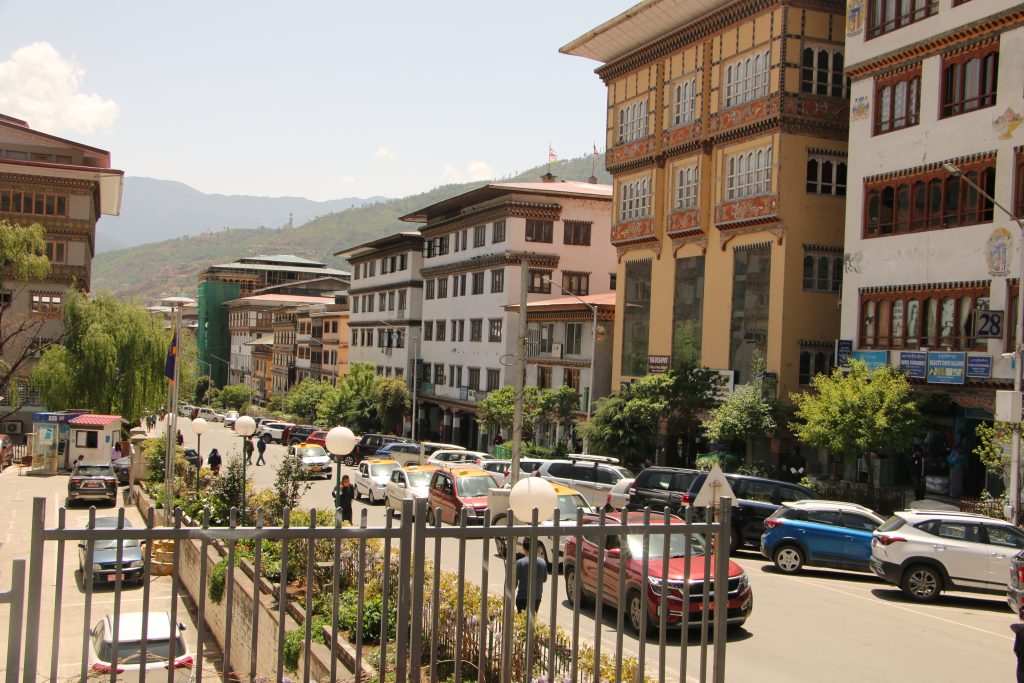It will be the first agency established under the DHS, MoIT ,and is part of the restructuring and transformative reforms in the civil service
Tenants all around the country can now heave a sigh of relieve and seek the assistance of a new division that has been established under the Ministry of Infrastructure and Transport (MoIT), which will take the role of a central agency responsible for urban affairs in the country in accordance with rules and regulations and implement provisions of the Tenancy Act and Tenancy Rules and Regulation as instructed by the Tenancy Authority.
It is the Housing Division, which has been established under the Department of Human Settlement (DHS), MoIT.
Till date, there was no single agency under the MoIT to look after the housing sector. As a part of the civil service reform and with the restructuring and several transformative reforms, a fully fledged Housing Division is being established under the DHS.
Director of the DHS, MoIT, Tashi Penjor said, “There was no single agency under the Ministry to look after the housing sector. Hence, the housing mandate was vaguely distributed among few agencies, due to which desired outcomes could not be achieved.”
However, the Director shared that with the restructuring and transformative reforms in the civil service; a new fully fledged division is being established in the DHS.
According to the MoIT, the Housing Division under the DHS will be mandated to review and Implement the National Housing Policy, National Housing Act and other housing-related legislation.
Similarly the division will develop and implement rules, regulations and guidelines for affordable housing, apartments, condominiums and real estates and coordinate, implement, review and monitor the government Housing Program including determination of rent for public housing.
For instance, the division will take the role of central agency responsible for urban affairs in the country as per the relevant rules and regulations and implement provisions of Tenancy Act and Tenancy Rules and Regulation as instructed by the Tenancy Authority.
The Director said that lack of a comprehensive and dynamic housing data and coordination issues in the housing sector are very challenging to tackle increasing rental charges.
“As of now there is no data on the housing stock in the country. It is further exacerbated by lack of information on the rents paid by the tenants as the requirement by the Tenancy Act to sign and submit the tenancy agreement between the lessor and lessee to the relevant authority is not observed,” said the Director, adding this was emphasized in a circular issued to all local governments (LGs) for enforcement.
To address this challenge, Tashi said that currently the Ministry in coordination with relevant agencies such as Ministry of Finance (MoF), Thimphu Thromde, Thimphu Dzongkhag and Government Technology (GoVTech) Agency is carrying out various activities and exercise to formulate a building database and an online system to maintain data.
“As and when the above-mentioned activity is completed, it will facilitate all agencies in making informed decisions not just limited to the housing sector,” said Tashi.
Meanwhile, to tackle the pressures of increasing rental charges, Director Tashi Penjor said that the MoIT has formulated Tenancy Act 2015 and is carrying out sensitization of Tenancy Act 2015 in the LGs, National Housing Policy 2020 and Housing Strategy 2021, while the ministry is also drafting the Housing bill.
“The ministry is working on the amendment of the Tenancy Act 2015 to address some of the pressing issues in the housing sector and also contribute towards the overall national development goals,” Tashi Penjor said, adding that as amendment to the existing legislation will take time, the ministry issued a circular to all the LGs to implement the provisions of the Tenancy Act 2015 in particular sections pertaining to rent determination and revision to address the immediate rental speculation.
Further, the Director said that as a part of the review and revision of the Thimphu Structure Plan, a strategy for housing is also being prepared for Thimphu Thromde and its Peri-urban areas. “The strategy among others, will outline the requirement of housing in general and the number of housing stocks required for the stabilization of rent.”
As per the provisions of the Tenancy Act 2015, the Ministry is the Tenancy Authority and the LGs are the implementing agencies. The Director said, since the issuance of the circular to implement the provisions of the Tenancy Act 2015, in particular sections pertaining to rent determination and revision to address the immediate rental speculation, the Ministry have received a number of complaints.
“We have directed the complaints to the LGs as prescribed in the Act for re-dresssal and we follow up on the actions taken by the local government,” said the Director adding that issues regarding rent hikes can be resolved if the requirement of the Tenancy Act to sign and submit the tenancy agreement between the lessor and lessee to the relevant authority is observed and fulfilled. Tenants can insist on this requirement when leasing a property.
Meanwhile, around 54% of Bhutanese live in houses, while about 40% live in separate apartment. About 4% live in a part of a house or shared apartments. A relatively large proportion of about 80.7% households in rural areas live in houses as opposed to 16.6% in apartments and only about 2.7% in part of house and shared apartment.
On the other hand, about 79.8% households in urban areas live mostly in apartments followed by 15% in houses and about 5,3% in shared apartments.
According to the National Statistic Bureau (NSB) report 2022, about 51.7% of households in Bhutan own their dwellings, while more than one-third, that is about 37.9% live in rented houses and little more than one-tenth, that is 10.5% live in rent-free dwellings.
Meanwhile, the mean monthly house rent paid by households in Thimphu district is about Nu 8,842, followed by Trashiyangtse district with Nu 5,534 and Nu 5,429 and Nu 5,373 in Paro and Sarpang districts.
Sherab Dorji from Thimphu













